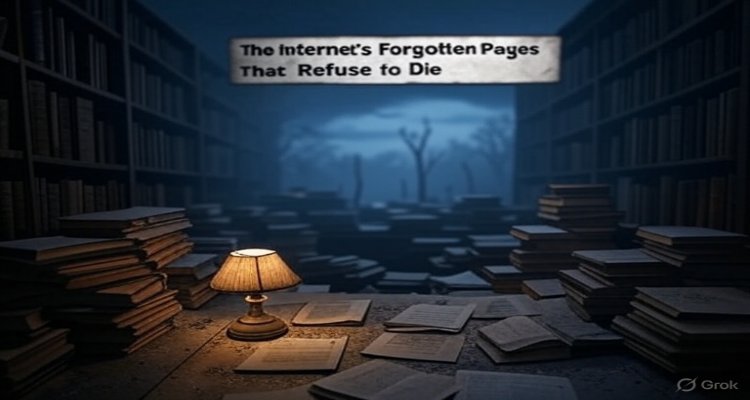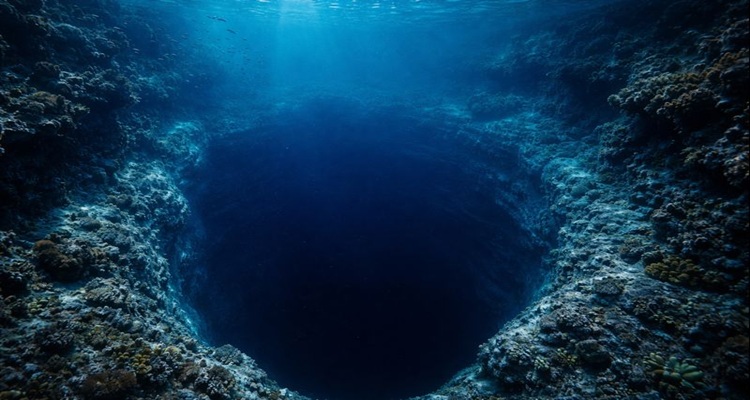The Internet’s Forgotten Pages That Refuse to Die

Buried websites, abandoned blogs, and forgotten forums still haunt the web. Discover why these digital relics endure and what they reveal about online memory.
Introduction: Ghosts in the Digital Machine
The internet moves at breakneck speed. Platforms rise and fall, viral trends burn out overnight, and yesterday’s websites are often forgotten. Yet scattered across the vastness of cyberspace are relics—abandoned blogs, glitchy forums, early social networks—that stubbornly remain online. These digital fossils, untouched yet un-erased, are more than curiosities. They are fragments of the internet’s past that continue to haunt its present.
Context & Background: When the Web Was Young
In the 1990s and early 2000s, creating a personal website was an act of self-expression. Platforms like GeoCities, Angelfire, and LiveJournal gave ordinary people a chance to build digital homes. Forums buzzed with conversations, fan pages celebrated obscure hobbies, and HTML-coded diaries captured teenage angst.
But as social media consolidated attention, many of these spaces were abandoned. Companies shut down services, links decayed, and communities migrated elsewhere. Still, many pages survived—sometimes preserved by accident, sometimes by sheer neglect. They remain frozen in time, untouched by the polish and algorithms of today’s web.
Main Developments: Pages That Refuse to Vanish
Despite the relentless churn of digital culture, forgotten websites endure in surprising ways:
- Abandoned Forums: Message boards once dedicated to niche passions—arcade gaming, pet care, or conspiracy theories—remain visible, their last posts timestamped over a decade ago.
- Corporate Ghost Pages: Old company websites, left on outdated servers, continue to exist long after the businesses themselves have collapsed.
- Personal Pages: Blogs with broken counters, pixelated GIFs, and autoplaying music remain accessible, like digital diaries trapped in amber.
- Preserved Archives: Projects like the Internet Archive’s Wayback Machine ensure that even deleted pages often leave behind echoes.
Their persistence isn’t just technological; it’s cultural. They remind us of what the web looked and felt like before it became streamlined and commercialized.
Expert Insight & Public Reaction
Digital anthropologists see these remnants as invaluable. Dr. Jennifer Holt, a media historian, explains: “Forgotten websites are like archaeological ruins. They reveal not only what people created but how they imagined the internet would function—as a personal, messy, communal space.”
Meanwhile, internet users stumble upon these pages with a mix of nostalgia and unease. Reddit threads regularly surface screenshots of forgotten web corners, with comments ranging from “this feels like time travel” to “I can’t believe this is still online.”
Cybersecurity experts, however, warn of risks. Old pages may host outdated scripts, insecure logins, or malware vulnerabilities—reminders that digital ghosts can sometimes bite.
Impact & Implications: The Persistence of Memory
The survival of forgotten websites raises broader questions:
- Who Owns Memory Online? Unlike books stored in libraries, web pages depend on private servers and corporate goodwill.
- Digital Decay vs. Digital Permanence: While links rot at alarming rates, some obsolete pages linger indefinitely, complicating our assumptions about ephemerality.
- Cultural Significance: These pages act as unintentional archives, capturing trends, aesthetics, and voices erased from mainstream platforms.
- Future of Preservation: Institutions like the Library of Congress and nonprofits like Archive Team are working to systematically save these fragments—but the task is enormous.
For ordinary users, the existence of forgotten pages is both comforting and haunting. They remind us that the internet is not just a stream of the present but also a reservoir of the past.
Conclusion: What the Forgotten Teach Us
The internet’s forgotten pages are not just digital debris. They are proof that memory persists in unexpected ways. In an age of endless scrolling and algorithmic feeds, these static, outdated pages stand as markers of a different web—one built less for optimization and more for experimentation.
As we move deeper into an era of AI-generated content and platform monopolies, the persistence of these digital fossils forces us to ask: what will endure of today’s internet, and what will be lost?
Like ruins in a forgotten city, they whisper: We were here. We mattered once.
Disclaimer : This article is an independent analysis created for informational purposes. It does not endorse or promote any specific websites, platforms, or archives mentioned.










